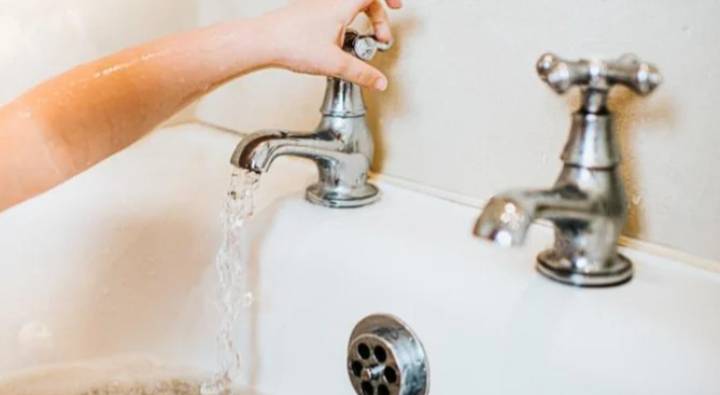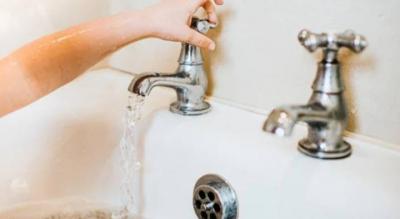The economic crisis has affected every aspect of Lebanese life, leaving no lifestyle unchanged. With the absence of electricity, hot water essential for personal hygiene in winter is also gone, leading to a reliance on gas water heaters as a last resort to restore hot water. However, this sector has also descended into chaos. Like the case with solar energy, many Lebanese have become "amateur gas heater installers," which has resulted in incidents leading to suffocation and even death. Gas heaters, commonly used in many countries worldwide, have been blamed for these accidents due to their poor safety record.
The economic crisis has pushed Lebanese people toward more innovations and individual solutions for collective crises, from solar panels replacing electricity to using firewood for heating, and returning to gas water heaters instead of electric ones. In 2022, Lebanese imported gas heaters worth about $4 million, compared to only $47,000 in 2021, according to customs statistics. Electric heaters have become mere large pipes for water due to the almost total absence of electricity and the inability of solar panels, if present, to meet their high electricity demands, especially during winter.
**The Deadly Heater?**
However, these solutions have not been without costs or challenges. As a result of the complete absence of any state support and the collapse of the electricity sector, the necessary solar energy equipment to replace the official power supply has drained hundreds of millions of dollars. Since 2019, "Lebanese have learned from each other," according to one engineer. Excluding the fires and accompanying technical problems, "a significant number of projects were either never successful or used more equipment than necessary, leading to doubled costs."
Yet, unlike solar energy, which has not caused any fatalities to date, gas water heaters have resulted in over 20 suffocation cases so far, with four individuals having died from suffocation while bathing due to inhaling carbon monoxide gas. One of the suffocation victims, Malak, recounts her experience as "a loss of breath and the inability to stand," noting that "the last thing I felt was falling on the bathroom floor before waking up in the hospital with an oxygen mask."
**Scientific Explanation**
Malak's experience was predictable, especially after installing a gas heater inside the bathroom. These heaters operate by burning gas to efficiently heat water with minimal consumption, heating fine copper pipes through which water passes before it emerges from faucets, thus providing hot water in just seconds without needing to warm a large quantity of water. The gas heater technology is quite old in the Lebanese market, dating back to the 1960s, though most Lebanese had abandoned them by the late 1990s in favor of electric heaters, resulting in a scarcity of skilled labor capable of professionally and effectively installing these devices.
Consequently, "the problem isn't with the heater," according to one technician, as gas water heaters are now installed without adhering to basic safety standards, in cramped bathrooms, and are not connected to chimneys for venting combustion gases. In the absence of proper ventilation, these heaters cause suffocation issues due to incomplete gas combustion from a lack of oxygen, which leads to the emission of carbon monoxide, known as the "silent killer" due to its absence of smell, color, or taste. After inhaling a large amount of this gas, a person loses consciousness and falls, worsening the situation. Carbon monoxide is heavier than air, accumulating near the ground, which leads to inhalation of even more of it, resulting in unconsciousness and potentially death.
**Engineering Solutions**
"There is no problem with installation inside bathrooms, but chimneys must be installed on the heater to vent gases, and ventilation openings are essential, along with a fan to bring in oxygen-rich air," says Hadi Taki, an engineer specializing in safety systems and fire prevention. Taki fears two main dangers: "carbon monoxide poisoning and gas leaks that could lead to explosions," and he prefers "to keep these heaters outside of closed rooms, installing them on balconies for better safety."
For those who have installed these heaters in bathrooms, Taki notes the high costs of solutions, which require special gas sensors, although their effectiveness in a closed bathroom environment filled with steam is questionable. Conversely, he advises spending less time bathing while the heater is running.
Randa Suleiman, a mechanical and energy engineer, agrees with Taki and expands on the problem being "the quality of the cheap heaters used, which lack safety systems, combined with the absence of expertise among the technical workforce." She confirms that these devices can be installed indoors only if they have chimneys to vent emitted gases and electronic sensors that cut off gas supply during leaks. Suleiman mentions that some companies importing heaters have "trained technicians on how to install and operate them," highlighting that "there are individuals with extensive experience in this field spanning over thirty years."
**Municipal Response**
Suffocation incidents have prompted municipalities and some sales outlets to declare what resembles a state of emergency. In Burj al-Barajneh, the municipality issued a circular warning of the dangers posed by these devices. In a conversation with "Al-Akhbar," Mayor Atef Mansour emphasized the need for professional and cautious handling of these devices, noting that installation involves more than just securing four screws in a bathroom wall. He mentions the municipality has requested residents to place the heaters they install on balconies and warns stores selling the heaters in its jurisdiction about the necessity of guiding citizens on the best installation practices.
During a visit to plumbing supply stores, the overwhelming number of stacked heaters indicates a rush by citizens to purchase them. At first glance, the shop owner emphasizes the need to install them on a balcony or in an unused bathroom, adding that she "does not take responsibility for poor installations," referencing previous suffocation incidents, and recommends "using a specialized technician for the installation."
**Legal Proceedings**
On a legal level, the injuries have not gone unnoticed, as lawyer Hassan Bzai indicates "a lawsuit has been filed in the Nabatieh court against a company promoting gas heaters because the advertisement used contains no warnings of the risks, thus misleading citizens about the safety of the product." Bzai adds that the desired outcome of the case is to "first halt sales for 15 days and then appoint an expert to inspect the goods and identify defects." If any are found, "we will seek a final decision to ban their sale and task customs with preventing their import into Lebanon."
Bzai also highlights a more significant issue, which is "the negligence of public prosecutors who merely task police stations with determining the cause of death and documenting it without completing investigations or expanding inquiries," comparing the situation to "delivering a corpse to the police station, while we take on the role of the public prosecutors, especially with the absence of summoning agents for investigations, appointing experts, etc."




